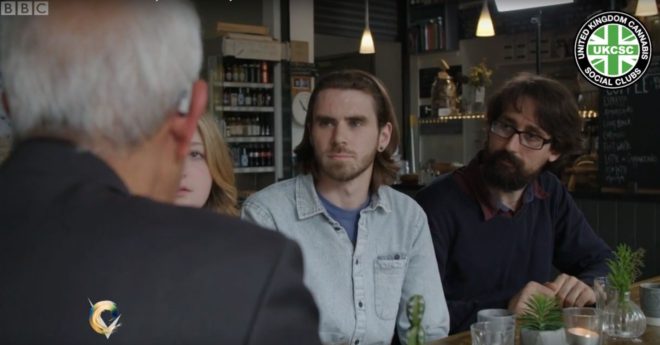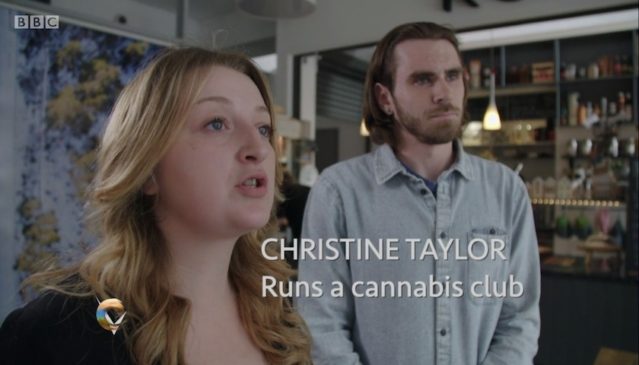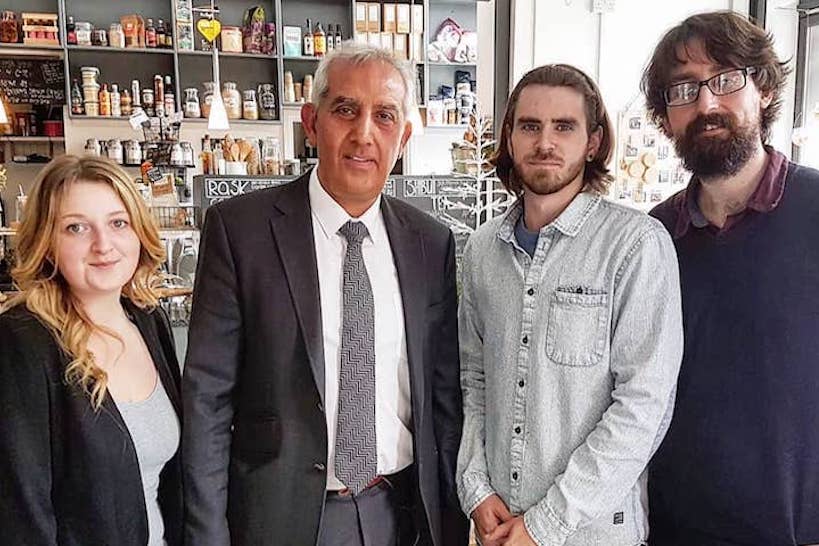Six Police Crime Commissioners have come out in support of the legalisation of the model exemplified by UK Cannabis Social Clubs and others like it.
The six PCCs represent: West Midlands, Derbyshire, Cambridgeshire and Peterborough, Durham, North Wales, and Avon and Somerset.
The PCCs for Gloucestershire and Dorsets also say they do not believe criminalisation is necessary, while a further six say the ‘crime’ of cannabis use is not a focus for them or they were open to discussion about it. But 16 remain actively opposed to decriminalisation.
All 39 PCCs in England and Wales, who oversee police forces, were contacted by the BBC’s Victoria Derbyshire Show to ask their view on cannabis clubs and the wider issue of decriminalisation. Six did not reply.
 The Victoria Derbyshire Show programme followed up the survey by taking Hardyal Dhindsa, the PCC for Derbyshire and the national lead on drug use, to meet club managers.
The Victoria Derbyshire Show programme followed up the survey by taking Hardyal Dhindsa, the PCC for Derbyshire and the national lead on drug use, to meet club managers.
“My job is to stimulate debate and look at an area where there is good practice – to reduce criminality and people’s vulnerability,” he said.
After the meetings, he added that he supported the concept of cannabis clubs as prohibition alone placed potentially dangerous substances in the hands of serious criminals.
“I was sceptical about this before I came. What I’ve heard is they appear to be making a difference in terms of how people don’t go on the street and get more targeted and become more vulnerable.
“I’m not condoning this kind of activity but we need a discussion… to work with the Home Office to see whether cannabis clubs have a part to play in looking at how we can actually tackle drug misuse and criminality. I want to create that discussion.”
Greg de Hoedt, UKCSC chairman, and and Christine Taylor, co-manager of the Teesside Cannabis Club, felt they had been listened to, adding: “We just hope something comes of it.”
 Greg admitted he was still “very nervous” about the clubs he oversees. “We’re still having people who are growing a small number of plants for themselves who are having their doors kicked through, being arrested,” he said.
Greg admitted he was still “very nervous” about the clubs he oversees. “We’re still having people who are growing a small number of plants for themselves who are having their doors kicked through, being arrested,” he said.
Christine told the programme that the clubs are also about socialising. “People will come from all over the place and for some people it’s their outlet, their one day out a week.”
Avon and Somerset Police have already pushed the barriers of the existing law.
There, anyone caught with any drug for personal use – even a class-A substance – will no longer be charged but sent on a drug awareness course. It is the equivalent of a speed-awareness course, where people see the detrimental effects of the individual drug they were caught with.
Avon and Somerset PCC Sue Mountstevens said: “Changing our perceptions and giving people the opportunity to take a different path is a big part of breaking the cycle of crime.”
So far, in a trial based on a much smaller area, the course, which is backed and run by the PCC, has proved a success, with a major reduction in re-offending rates.
Other PCCs calling for a change in approach include Jason Ablewhite, for Cambridgeshire and Peterborough, who wants to differentiate between cannabis and what some consider more harmful drugs.
“We do need to take a fresh look at the way we deal with cannabis users,” he said. “We also need to find more appropriate deterrents for those dealing in drugs that have the most harmful effects.”
A Home Office official said: “The trade and possession of recreational cannabis is illegal in the UK, regardless of where you use it.
“How police choose to pursue investigations is an operational decision for chief constables – but we are clear that we expect them to enforce the law.”
Follow the UKCSC on social media: Facebook – Instagram – Twitter – Reddit





Comments (4)